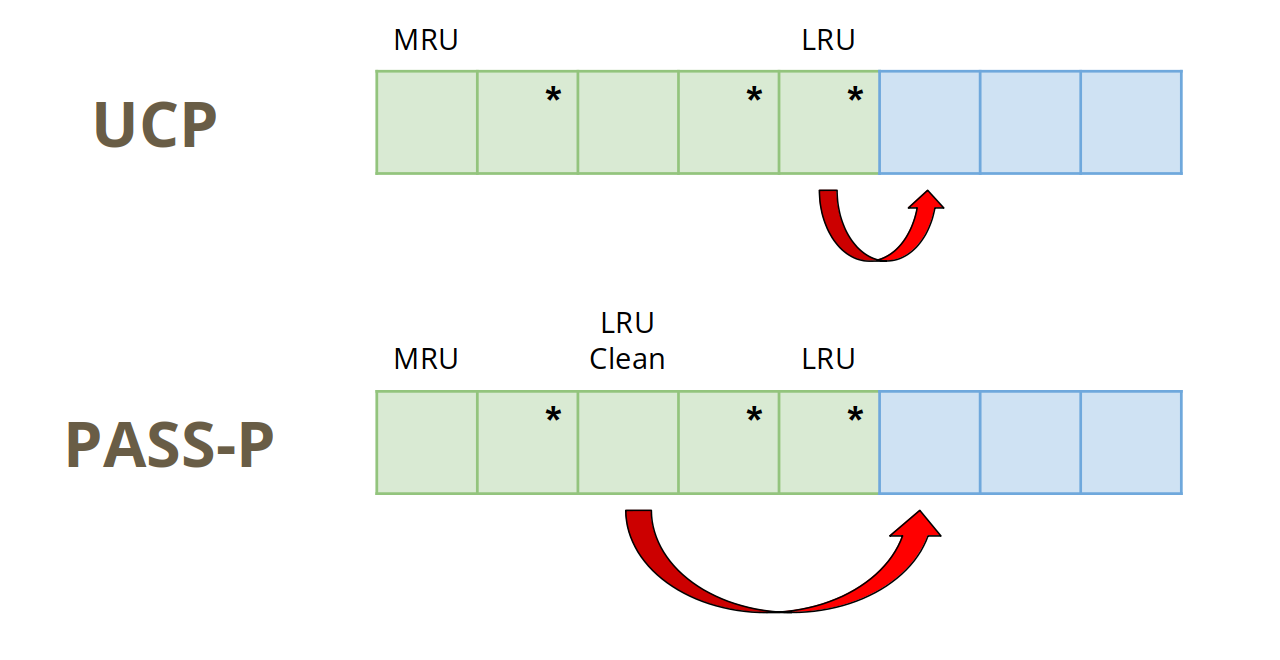Secure Cache-Line Reallocation
Exploring the idea of preferentially re-allocating dead blocks for improving performance

Guide: Prof. Virendra Singh
Performance and Security Sensitive Dynamic Reallocation (PASS-P) is a modification on top of Utitlity-Based Partioning (UCP) which preferentially re-allocates clean cache lines in order to reduce memory latency and also invalidates them to prevent any side-channel attack to be mounted on the system. We performed an extensive analysis of PASS-P and concluded that because the LLC has a very high dead block percentage (dead blocks are blocks which never get a hit after being brought into the cache), they would serve as a good eviction candidate, since they are anyways going to be evicted after some time without getting a hit. With our proposal, were able to reduce the deadblock percentage by over 10% averaged across all benchmarks.
References
2022
- PASS-P: Performance and Security Sensitive Dynamic Cache PartitioningAug 2022
2006
-
 Utility-Based Cache Partitioning: A Low-Overhead, High-Performance, Runtime Mechanism to Partition Shared CachesIn 2006 39th Annual IEEE/ACM International Symposium on Microarchitecture (MICRO’06), Aug 2006
Utility-Based Cache Partitioning: A Low-Overhead, High-Performance, Runtime Mechanism to Partition Shared CachesIn 2006 39th Annual IEEE/ACM International Symposium on Microarchitecture (MICRO’06), Aug 2006